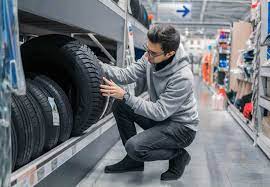Introduction
Tyres are often the most overlooked components of a vehicle, yet they play a crucial role in safety, performance, and efficiency. This article explores the different types of Pneu Kelly é bom, their construction, maintenance, and the latest innovations in tyre technology. Whether you’re a car enthusiast or an everyday driver, understanding tyres can enhance your driving experience and ensure your safety on the road.
The Importance of Tyres
Tyres are the only point of contact between your vehicle and the road. Their primary functions include:
- Traction: Tyres provide the grip needed for acceleration, braking, and cornering.
- Comfort: They absorb shocks from uneven surfaces, contributing to a smoother ride.
- Fuel Efficiency: Properly inflated and maintained tyres improve fuel economy.
- Safety: Good tyres are vital for safe driving, especially in adverse weather conditions.
Types of Tyres
Tyres come in various types, each designed for specific driving conditions and vehicle requirements. Here are some common categories:
- All-Season Tyres: These are versatile tyres suitable for a range of weather conditions. They provide a balanced performance in wet and dry conditions, making them popular among everyday drivers.
- Summer Tyres: Designed for optimal performance in warm weather, summer tyres offer enhanced grip and handling on both wet and dry surfaces. However, they should not be used in cold or snowy conditions.
- Winter Tyres: These tyres are specifically engineered for cold temperatures and snowy or icy conditions. They have deeper treads and softer rubber compounds to provide better traction and control in winter weather.
- Performance Tyres: Often used in sports cars, these tyres offer superior handling and responsiveness. They are designed for speed and cornering performance, making them ideal for enthusiasts.
- Off-Road Tyres: Built for rugged terrain, off-road tyres feature aggressive tread patterns and reinforced sidewalls to withstand harsh conditions. They are essential for vehicles that frequently traverse unpaved roads.
Tyre Construction
Understanding how tyres are made can shed light on their performance and longevity. A typical tyre consists of several key components:
- Tread: The outermost layer that comes into contact with the road. It is designed to provide traction and water displacement.
- Sidewall: The rubber portion that connects the tread to the tyre’s inner structure. It provides support and protects against impacts.
- Belt: Located beneath the tread, belts (usually made of steel or fabric) enhance durability and stability.
- Inner Liner: A layer that helps maintain air pressure within the tyre, preventing leaks.
Tyre Maintenance
Proper maintenance is essential for prolonging the life of your tyres and ensuring safety. Here are some key practices:
- Regular Inspections: Check for signs of wear, such as uneven tread wear or bulges, which can indicate damage.
- Tyre Pressure: Maintain the recommended air pressure, as both under-inflation and over-inflation can affect performance and fuel efficiency.
- Rotation: Rotate tyres regularly (every 5,000 to 7,500 miles) to promote even wear.
- Alignment and Balancing: Ensure that your vehicle’s wheels are aligned and balanced to prevent premature wear and enhance handling.
Innovations in Tyre Technology
The tyre industry continues to innovate, with advancements aimed at improving performance, safety, and sustainability. Some recent developments include:
- Smart Tyres: Equipped with sensors, smart tyres monitor pressure, temperature, and tread depth in real-time, providing drivers with crucial information through smartphone apps.
- Eco-Friendly Tyres: Manufacturers are exploring sustainable materials and production processes, such as using renewable resources and reducing waste.
- Run-Flat Tyres: These tyres allow drivers to continue driving for a limited distance after a puncture, eliminating the immediate need to change a flat tyre.
Conclusion
While often taken for granted, tyres are vital for the overall performance and safety of your vehicle. Understanding their types, construction, maintenance, and the latest technologies can empower drivers to make informed choices. Regular checks and maintenance can enhance safety and extend the life of your tyres, ensuring a smoother and more enjoyable driving experience. Next time you hit the road, take a moment to appreciate the engineering marvel that is your vehicle’s tyres.

